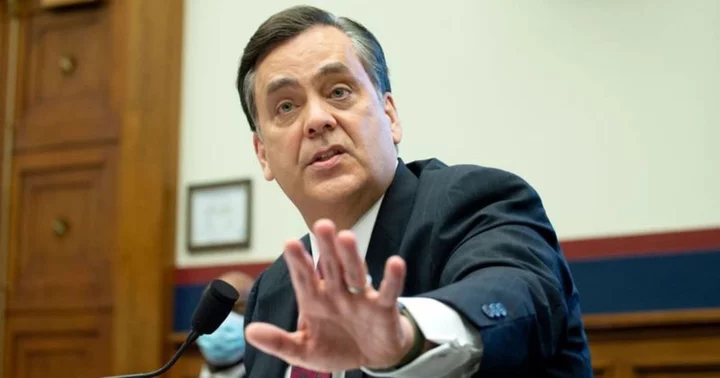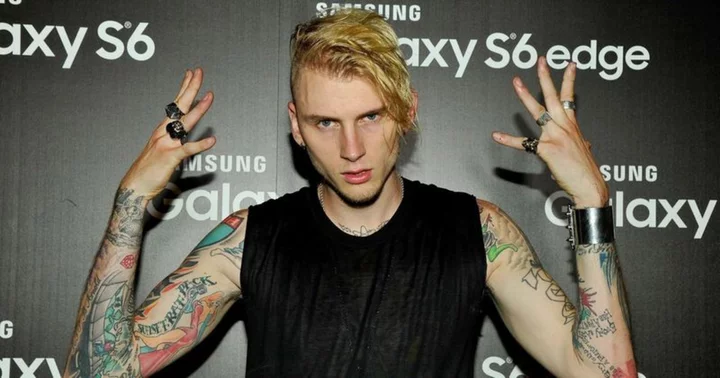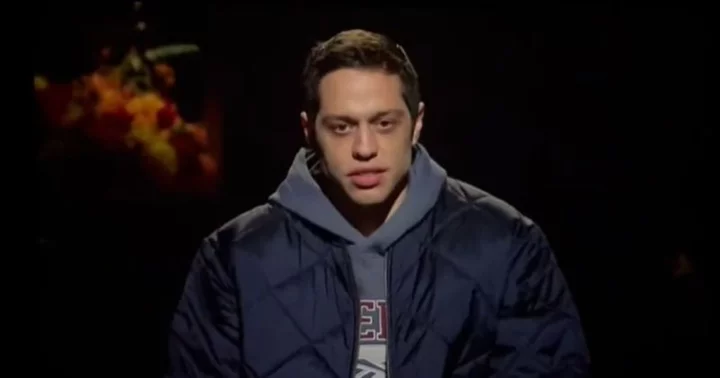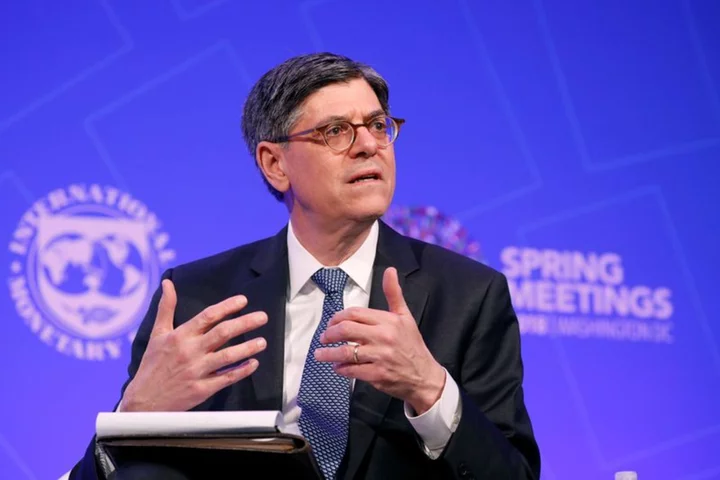LOS ANGELES, CALIFORNIA: In a recent op-ed, conservative commentator Jonathan Turley has expressed significant concerns over the state of academia, particularly in light of recent events involving Cornell University Professor Russell Rickford.
The Rickford controversy
Turley highlighted Rickford's controversial remarks about the Hamas attack on Israel, starting a discussion on academic bias and the need for a diversity of viewpoints within educational institutions.
The renowned legal scholar began by discussing Russell Rickford's comments, which have garnered considerable attention. Rickford, while asserting that he does not support violence or terrorism, described the Hamas attack on Israel as "exhilarating."
"As some in the media and academia now distance themselves from Rickford, they ignore their past support for him and others with the same radical agenda in academia," Turley wrote on his website.
He noted that Russell Rickford is not an isolated case. He is one of several academics who have expressed extreme views within academic institutions. Turley highlighted the case of Ameer Hasan Loggins, a faculty member at Stanford, who faced suspension for an incident involving a group of Jewish students who were told to "collect their things and stand in a corner."
"These academics were well-known by their schools for their extreme views and advocacy in classrooms," he continued. "They are part of an academia that now runs largely from the left to the far left.
Turley further added, "I have previously opposed efforts to censor academics or students based on their controversial viewpoints," as he noted, "What is ironic is that many of the figures who have led past cancel campaigns are now the subject of the same calls after supporting Hamas’ attack."
Purge of conservative and libertarian voices
Many universities have reportedly "purged" conservative, Republican, and libertarian voices from their faculty ranks over the past two decades. This trend has resulted in an environment where professors with more extreme perspectives have become increasingly prevalent, Turley noted. "In that sense, Rickford is the norm, part of academia’s radical chic," he insisted.
Turley argues that Rickford's views and support for the Hamas attack have spurred calls for a more diverse range of perspectives within academic institutions.
“Hamas has punctured the illusion of invincibility. … Nothing will be the same again … It was exhilarating. It was exhilarating, it was energizing," Rickford openly told students, adding "And if they weren’t exhilarated by this challenge to the monopoly of violence, by this shifting of the balance of power, then they would not be human. I was exhilarated.”
Turley continued, "A member of the Democratic Socialists of America, Rickford has long been a favorite of some media, including the Washington Post which has run his columns."
He further noted, "Citing struggles from Black Lives Matter to the Palestinian cause in one Post column, Rickford insisted that Blacks need to reclaim the radical image of Martin Luther King and realize that true solutions will not be found through the government but 'from the unruly and subversive elements that lie below.'"
Regardless, Cornell was "enthusiastic in adding him to its faculty ranks as it has other militant far-left faculty. At the same time, it has gradually eliminated the conservative voices that Rickford has denounced," Turley added.
Left-wing ideology
Some have raised concerns about the lack of ideological diversity in faculty members, as the majority tends to identify as liberal or very liberal, in contrast to the broader political distribution of the American population.
"Many academic leaders seem desperate to prove they are part of that 'sliver' of the enlightened, by hiring far-left advocates like Rickman. They nod in agreement or remain silent in the face of racist, inflammatory rhetoric," Turley continued.
Additionally, Turley acknowledged reports of racial tensions on campuses, including inflammatory statements made by Rickford and others about whites.
"For many professors, the risk is simply too great when they could be the next target of a cancel campaign. Now, those same long-silent academic voices are being raised in shock at Rickman’s latest rhetoric. Yet, in fairness to Rickman, he has hardly been subtle or restrained; he simply directed his hate-spewed rhetoric against others in the past," Turley stated.
As the op-ed concludes, it calls for change and suggests that greater diversity in faculty should be the solution, rather than increased censorship.
"The solution, again, is not greater censorship but greater diversity on faculties. Donors and alumni need to demand a reversal of the elimination of conservative, libertarian, and dissenting voices on faculties," Turley wrote, adding, "Such reforms will occur only after they recognize that Rickford has long been the ideal, not the aberration, in academia."
Social media reactions
Conservatives on social media nodded in agreement with Turley as he posted an excerpt from his column on X.
"Correct. Conservative voices in Higher Ed are nonexistent, and been for years," one person posted in response.
"Thank you for your voice. Sadly I now not only believe that a college degree might be a waste of time and money but actually damaging. Perhaps by the time my 6 year old has to choose, the tide would have changed," another wrote.
"People are voting with their feet. Many colleges don’t educate anymore and parents/students understand that. It’s a tragedy all around," someone else offered.
"I’m a conservative and I appreciate your honesty. There needs to be more people like you in the world. Thanks," another gushed.









